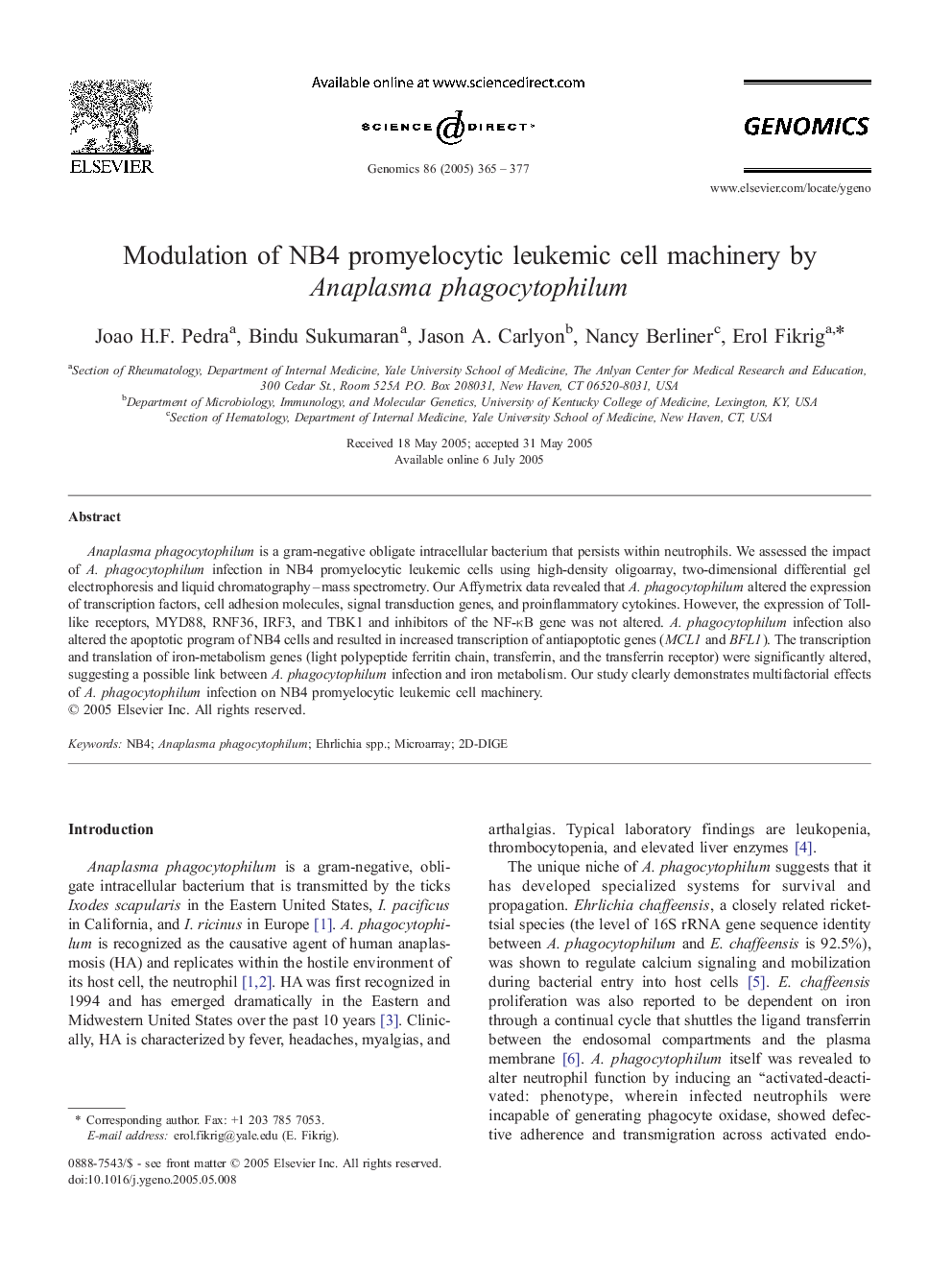| Article ID | Journal | Published Year | Pages | File Type |
|---|---|---|---|---|
| 9131876 | Genomics | 2005 | 13 Pages |
Abstract
Anaplasma phagocytophilum is a gram-negative obligate intracellular bacterium that persists within neutrophils. We assessed the impact of A. phagocytophilum infection in NB4 promyelocytic leukemic cells using high-density oligoarray, two-dimensional differential gel electrophoresis and liquid chromatography-mass spectrometry. Our Affymetrix data revealed that A. phagocytophilum altered the expression of transcription factors, cell adhesion molecules, signal transduction genes, and proinflammatory cytokines. However, the expression of Toll-like receptors, MYD88, RNF36, IRF3, and TBK1 and inhibitors of the NF-κB gene was not altered. A. phagocytophilum infection also altered the apoptotic program of NB4 cells and resulted in increased transcription of antiapoptotic genes (MCL1 and BFL1). The transcription and translation of iron-metabolism genes (light polypeptide ferritin chain, transferrin, and the transferrin receptor) were significantly altered, suggesting a possible link between A. phagocytophilum infection and iron metabolism. Our study clearly demonstrates multifactorial effects of A. phagocytophilum infection on NB4 promyelocytic leukemic cell machinery.
Related Topics
Life Sciences
Biochemistry, Genetics and Molecular Biology
Genetics
Authors
Joao H.F. Pedra, Bindu Sukumaran, Jason A. Carlyon, Nancy Berliner, Erol Fikrig,
